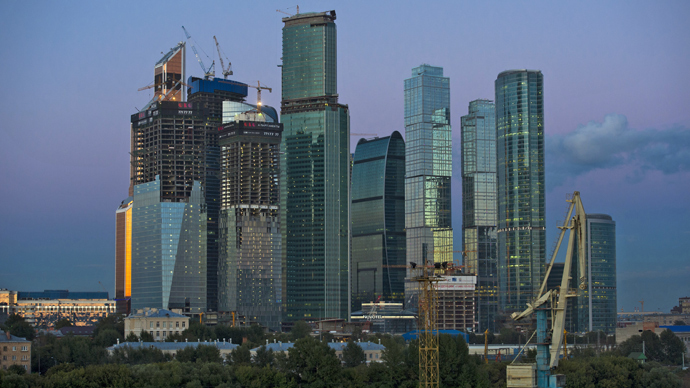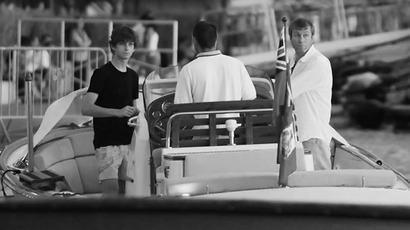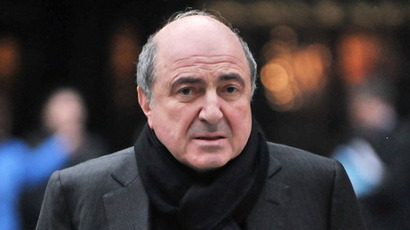‘If you build it, they will come’ - Russia's financial field of dreams

Or at least that's the plan. The billionaire capital of the world, Moscow, Europe’s largest city, wants to establish itself as a financial hub, despite loud calls that Russia is a ‘bad investment.'
The Russian proverb that ‘all roads lead to Moscow’ can be
validated by simply looking around and observing the wealth that
has accumulated in the capital city. Once more Russian money is
reinvested in Russia, foreign investment will follow.
A country rich in oil, energy, and precious metals, Russia’s wealth is highly concentrated in the capital city. In 2011, 22 percent of GDP came from Moscow, and 27 percent from the Moscow region, according to RosStat, the official government statistic bureau. According to the World Bank, Russia’s GDP is $1.86 trillion.
Much attention is paid to Moscow’s billionaires as financial
circles watch with intrigue as football clubs, Greek islands, and
New York penthouses are bought up by Russia’s new class of
wealth.
After the collapse of the Soviet Union, state capital found its
ways into the hands of a very few powerful oligarchs, and
‘new money’ consolidated in Moscow. Some of that capital has
fled, but much has stayed.
The city is home to 84 billionaires, headquarters the majority of state-owned energy and telecom giants, and the new sparkly skyline of Moscow-City, the not-even-finished skyscraper district is testimony to the Kremlin’s efforts to put Moscow on the map as a financial center.
The next step is hedge funds.
Hedge funds first arrived in Moscow alongside the explosion of
the Russian stock market in 2005-06, but the Western-managed
firms, without specific exposure to the local market, didn’t
emerge as hedge funds, but rather extra-big mutual funds.
'All roads lead to Moscow' doesn’t seem to explain why Russia’s richest and wealthiest are buying
assets abroad, and why several Moscow-based investment funds were
forced to pack up their bags because the investment climate
wasn’t spurring the profits minority shareholders expected.
Free-market capitalism arrived in Russia only two decades ago,
which offers a unique investment opportunity because of the
nebulous nature of the financial sector.
The ‘first hedge fund’
Moscow’s 'first macro hedge fund', Europe Finance Ltd. doesn’t
have any European clients, and in fact has no foreign clients at
all, but hopes to fill the hedge-fund niche for Russia and CIS
markets by offering a 100 percent local approach.
CEO and co-founder George Ivanyan explained the Cayman-based EPFC
Asset Management Group manages portfolios and provides ‘native’
consulting for start-ups and investors in the Russian market. On
its website the company says it represents 25 percent of high-net
individuals listed in the Forbes rich list.
They are currently partnered with Russia’s largest banks, both
national and foreign – Sberbank, VTB, Nomos-Bank, Deutsche
Bank, Renaissance Capital and Otkritiye. They are also affiliated
with Moscow’s MICEX-RTS Exchange. Long-short equity trading is
brokered by UBS and Goldman Sachs, both with Moscow offices.
A lot of their business comes from former sales and traders from
Troika Dialog, the investment arm of Sberbank, and Renaissance
Capital, which is now fully-owned by Brooklyn Nets franchise
owner and Russian billionaire Mikhail Prokorov’s ONEXIM
investment arm.
“As of now, hedge funds are helping each other, it’s a sort of
strange open community, a crowdsourcing type paradigm that won’t
last long as the industry develops,” George Ivanyan, CEO and
co-founder, told RT at an interview at their Moscow office.
The ‘alpha’ strategy, or high exposure method, accounts for 10
percent of the firm’s portfolio. Europe Finance said they have
seen yields of 1:15 and even 1:20 on gold, interest rates,
futures and other market bubbles.
Highly speculative, the FOREX market is also a part of their
portfolio, and they are closely watching hedging opportunities
against the euro, which has unexpectedly jumped this year.
Currency swaps in rubles and Russian OFZ government bonds, or
carry trades, are proving more attractive for Western hedge funds
because of the considerable difference in US and Russian rates,
which are about 600 basis points, or 6 percent.
“Quite often we take position in Russian rates or FX (RUBUSD,
RUBEUR) through options and currency swaps. We consider options
on MICEX and RTS as a possible hedge for our exposure to
Russia,” Ararat Mkrtchyan, head of Investor Relations at
Europe Finance, said at an interview at the company’s office in
Moscow.
Foreign hedge funds have little exposure to Russian rates, as
everything is in USD.
“There are plenty other advantages in Moscow investment, besides
the weather,” Denis Fonov, vice president of the group, said.
His partners joke that Fonov is probably on first-name terms with
every Russian oligarch, but more importantly, they probably know
him, too.
Why pay more?
New York, London, Singapore, Zurich, and Dubai are capital and asset management destinations for Russia’s billionaire “offshore oligarchs.” Many are overpaying for the identical advice they can get in Moscow.
But not all have the capital to enter the reputable US or London
hedge fund scene, where an entry ticket can cost upward of $20
million. Funds in Moscow will take on clients with portfolios
worth $5-10 million.
A new class of oligarchs and mini-garchs is emerging, and Russia
could be home to 1.2 million dollar millionaires by 2020,
according to a Deloitte estimate.
Not all of Russia’s millionaires will want to send their money to
Switzerland or the Caymans to be managed, which is why there will
be an increasing demand for locally-based money management tools.
The results are identical, but the service fees are much more
competitive.
Another stumbling block for high-net-worth Russians tucking their money away abroad: they can get referred to the wrong hedge fund. Many advisors have fee-sharing agreements, which result conflict of interest.
“This happens quite often,” said Mkrtchyan, noting many
Russians have lost big in real estate because of property right
preservation cases.
Europe Finance is providing a niche market for Russia’s
ultra-rich who have 'failed' outside of Russia – in real estate,
metals, or paying too much for expensive hedge fund advice.
“We have done due diligence for several Russian investors and
found out that most of their Swiss advisors provide quite simple
expertise for commission much higher than at well-known hedge
funds,” Mkrtchyan said.
Overlooking the Moscow river, the office space is a converted
luxury apartment, fitting as the group advises hedge funds on how
to reduce operational costs.
As the fund matures, they have plans to move to expand to London-
they already have unnamed clients lined up in China, Hong Kong,
and Georgia (not the state).
Predictably unpredictable
Another saying, more popular in the finance sphere, is that
“Russia is very predictable in unpredictable events,” that
is, the Moscow Exchange is highly exposed to small market stirs
and political shifts.
Ten years ago today, Mikhail Khodorkovsky was arrested. Indices
fell 10 percent and continued a four-week drain of 20 percent.
When opposition leader Aleksey Navalny was handed down a 5-year
prison sentence on July 18 (which was reversed the next day),
indices hit monthly lows.
Equity and asset trading are still highly volatile, which can
leave investors grinning stupidly with near 100 percent gains, or
conversely, out hundreds of millions in a day.
The infancy stage also provides great instability. The market cap
of the Moscow Exchange is shy of $1 trillion, a small fraction
compared to New York’s $13.4 trillion, Tokyo’s $3.8 trillion,
London’s $3.6 trillion, or even Bombay, India’s $1.6 trillion.
“To be predictable in unpredictable situations is a key
quality necessary for the asset management business,"
Vladimir Potapov, CEO at VTB Capital Investment Management, told
RT by email.
VTB Capital Investment Management, a leading Moscow-based
investment group, manages close to $190 billion in assets, and
already operates internationally in London, New York, Dubai, and
Hong Kong.
“If we talk in terms of the premium per unit of risk, Russian
stocks and fixed-income instruments look good relative to both
developed and emerging markets,” Potapov said by email.
President Vladimir Putin hopes to pump some life into the Moscow
Exchange via the privatization of state-owned assets, which he
says will not be dually listed in London.
Moscow may not yet be a financial heavyweight, and when it is, there will be more than one hedge fund.
Louise Dickson, RT Business














